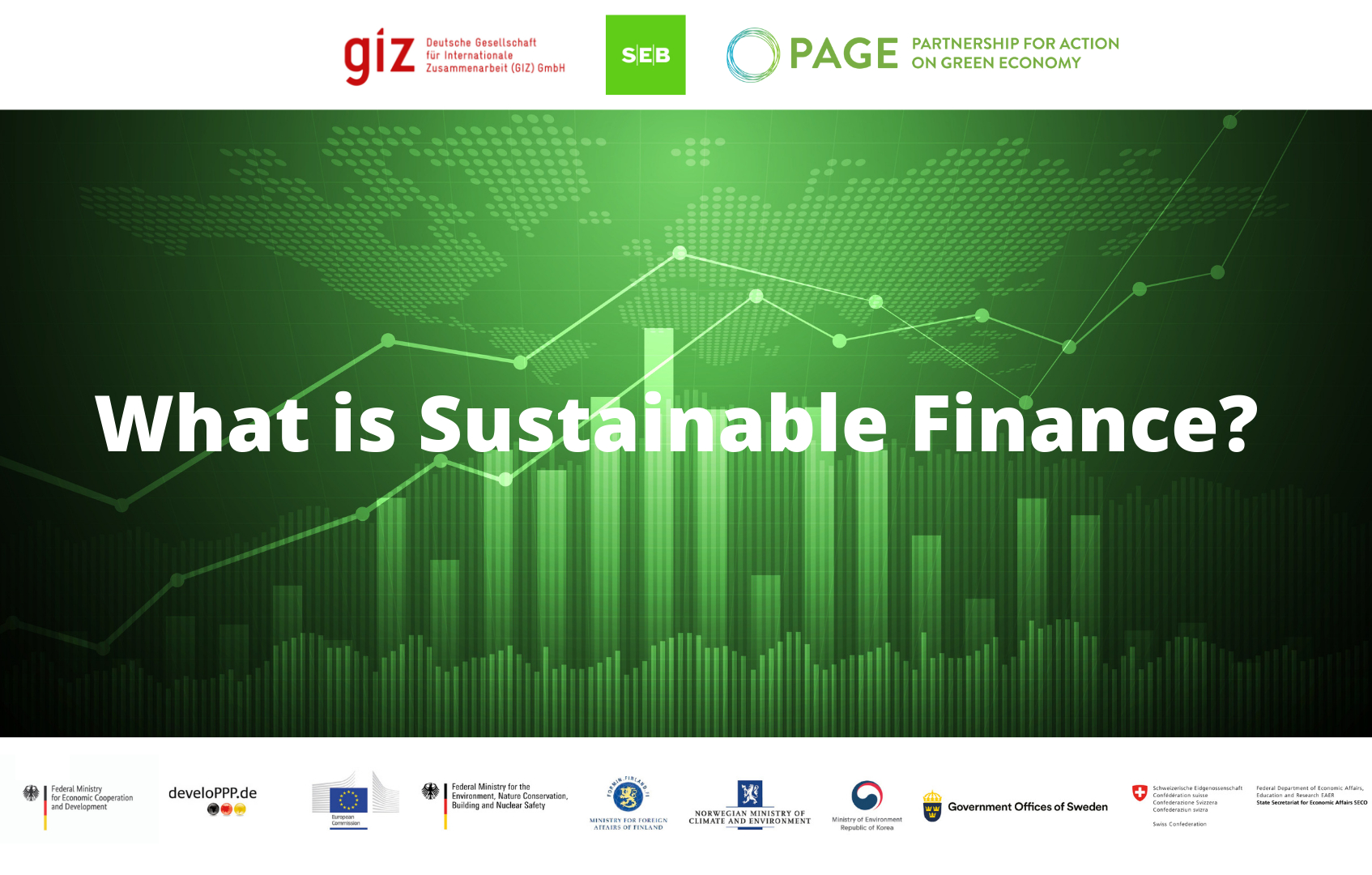IMPORTANT: Please register directly on the course website: http://unccelearn.org/
The Strategic Alliance on Green Bond Market Development in G20 Emerging Economies (STA), a partnership between Skandinaviska Enskilda Banken (SEB) and Deutsche Gesellschaft für Internationale Zusammenarbeit (GIZ) GmbH and the Partnership for Action on Green Economy (PAGE) are pleased to present this new e-learning course on Sustainable Finance.
This interactive and practice-oriented course covers the basics of Sustainable Finance while providing several opportunities to dive deeper. It shares valuable insights of the Strategic Alliance of GIZ and SEB and our technical partner CICERO, gained during activities in emerging economies and interactions with market participants worldwide. You will also learn about examples of UN-supported initiatives to promote sustainable finance in countries like Mongolia and Indonesia. The course is designed for interested participants from governments, financial sector, businesses, and civil society.


